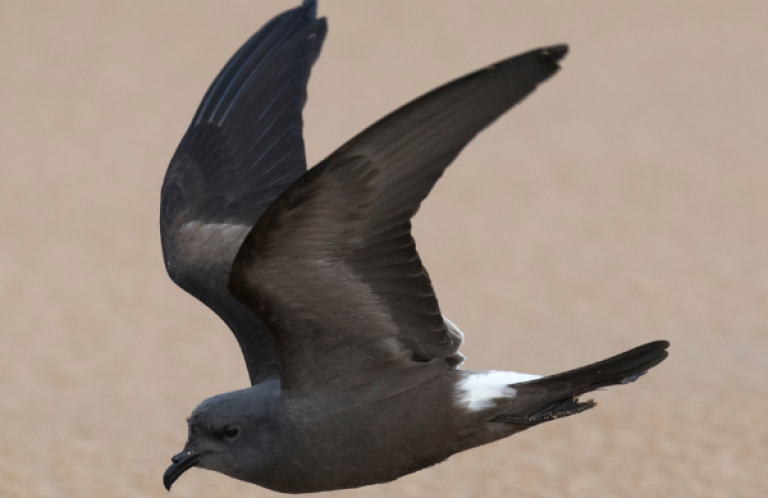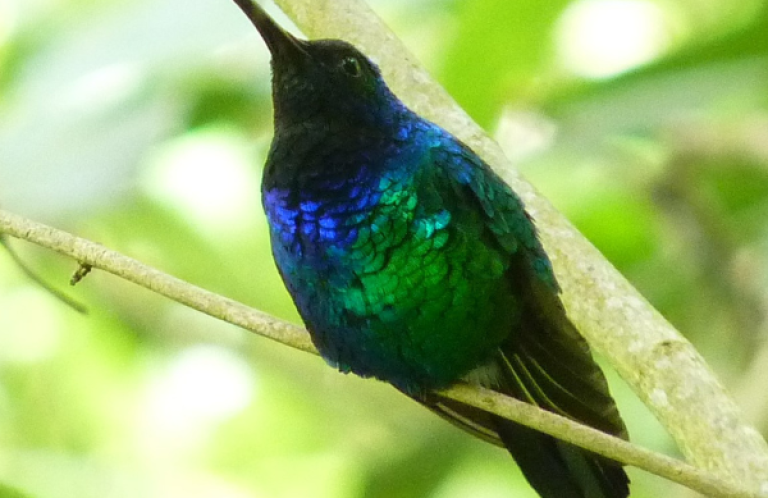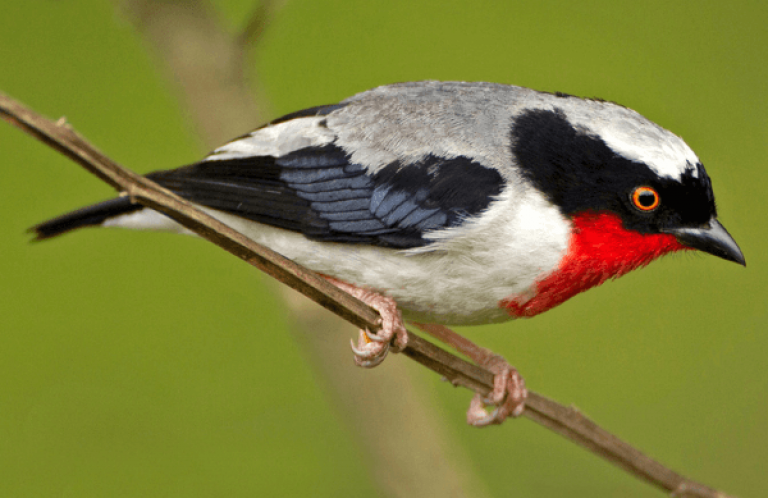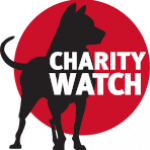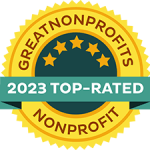In Exciting First, a Newell's Shearwater has Returned to Nihoku Translocation Site
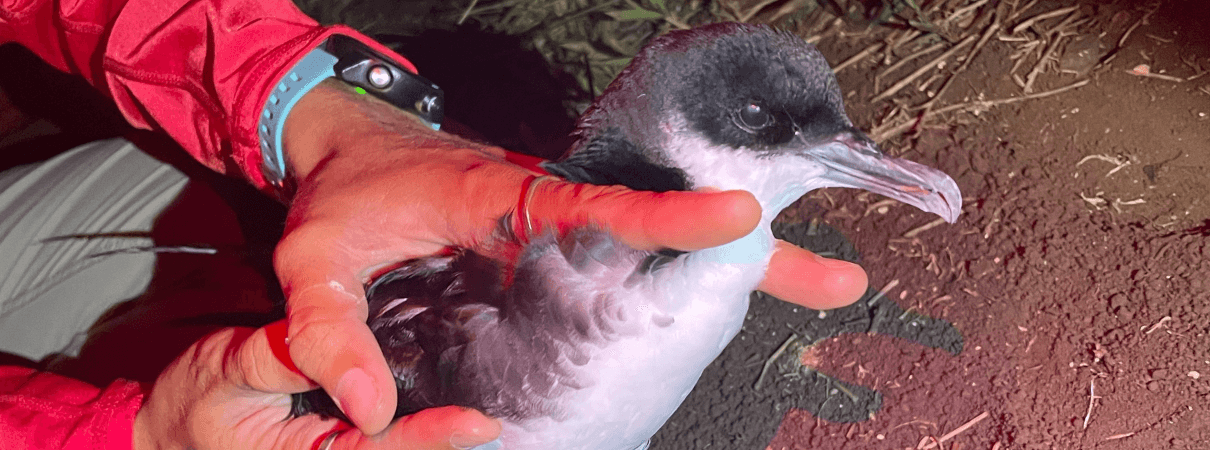
Conservationists confirm the first translocated Newell's Shearwater to return to Nihoku. (Please note that this bird was handled by trained and experienced professionals with the required permits.) Photo by Pacific Rim Conservation.
(August 11, 2022) Conservationists in Kaua‘i's Kilauea Point National Wildlife Refuge are celebrating an exciting find this summer. A wildlife camera has picked up the first return of a Critically Endangered Newell's Shearwater (‘A‘o) to Nihoku, a protected translocation site. If this individual is joined by others and successfully starts a colony at Nihoku, it could represent a needed lifeline for the species.
American Bird Conservancy (ABC) and partners* have been working to establish a Newell's Shearwater colony in Kilauea Point National Wildlife Refuge since 2015. The birds' population has plummeted in recent years — one study found that Newell's Shearwater numbers fell by up to 93 percent between 1993 and 2013. Of the individuals that remain, the majority nest on Kaua‘i, where adults and chicks regularly fall prey to invasive mammals like cats, rats, and mongooses. On their current trajectory, Newell's Shearwater are at serious risk of going extinct.
In 2014, ABC and partners built Kaua‘i's first-ever predator-proof fence to give them a better chance at raising chicks to adulthood, away from grazing deer and hungry predators. Starting the following year, conservationists began to move Newell's Shearwater chicks from unprotected colonies to the new site, hand-rearing them until they fledged. More than 100 individual shearwaters have been translocated since 2015.
Chicks typically return to the colony where they were raised when they mate and lay eggs of their own, but first they spend several years out at sea to mature. Conservationists have continued to translocate chicks to Nihoku, but there hasn't been a confirmed return to a nesting burrow — until this year.
In late June, a camera trap captured footage of an adult Newell's Shearwater calling from a burrow within the fenced area. Later, conservationists were able to capture the bird and read its band number, confirming it was a male translocated to the site in 2018. If other birds arrive and found a colony, it will be the only protected Newell's Shearwater colony in the world.
The Endangered Hawaiian Petrel (Ua‘u), another species translocated to Nihoku, is benefiting from the fenced area as well. Just today (August 11), a nesting pair produced the first-ever Hawaiian Petrel chick born at the site. The important milestone comes two years after this species first began returning to the site. Conservationists are now waiting to see if the two other pairs of Hawaiian Petrels nesting at Nihoku this year will hatch chicks of their own. The exciting developments with both species are a testament to years of hard work, patience, and determination from ABC and partners working to secure these birds' future survival.
*Partners participating in this effort include: Pacific Rim Conservation (PRC); the Kaua‘i Endangered Seabird Recovery Project (KESRP); Hono O Nā Pali Natural Area Reserve (HONP NAR) Hawai‘i Department of Land and Natural Resources Division of Forestry and Wildlife (DOFAW); University of Hawaiʻi at Mānoa Pacific Cooperative Studies Unit; the Kīlauea Point National Wildlife Refuge; and U.S. Fish and Wildlife Service.
###
American Bird Conservancy is a nonprofit organization dedicated to conserving wild birds and their habitats throughout the Americas. With an emphasis on achieving results and working in partnership, we take on the greatest problems facing birds today, innovating and building on rapid advancements in science to halt extinctions, protect habitats, eliminate threats, and build capacity for bird conservation. Find us on abcbirds.org, Facebook, Instagram, and Twitter (@ABCbirds).
Media Contact: Jordan Rutter, Director of Public Relations| jerutter@abcbirds.org | @JERutter





































